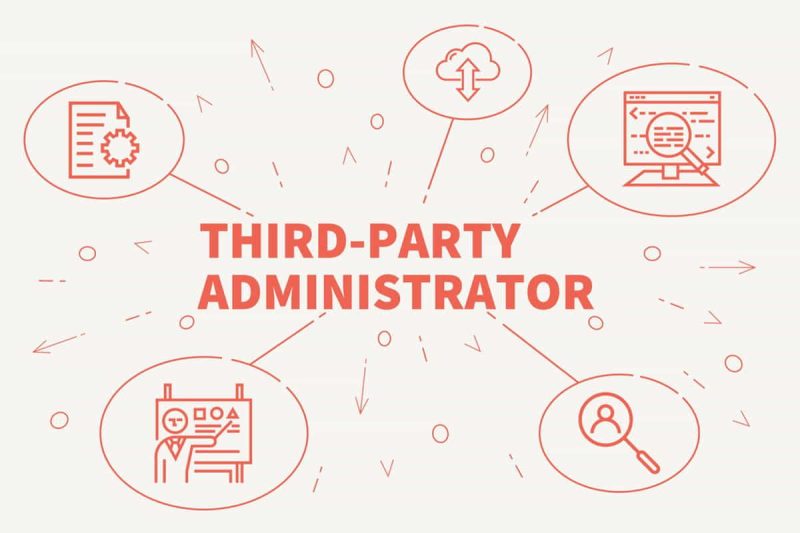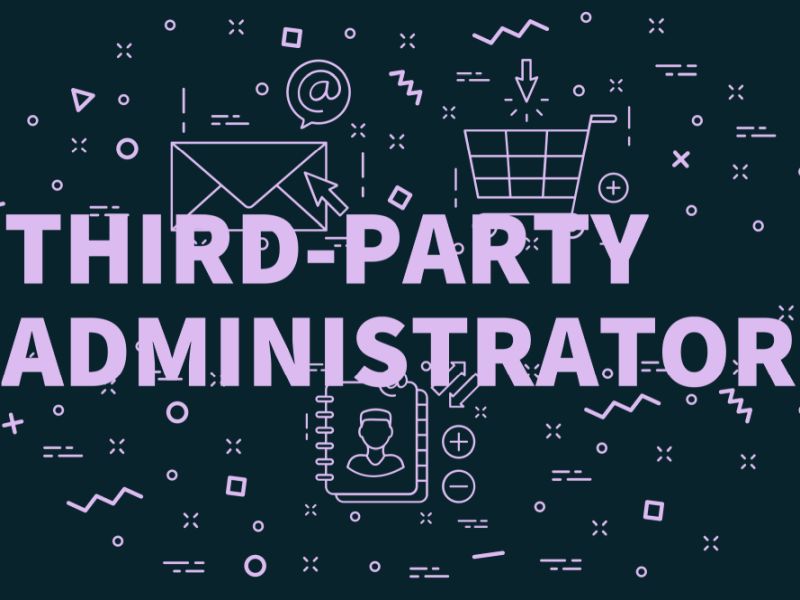What Does a Third-Party
Administrator (TPA) Do in Health
Insurance? Explained

Imagine you’re in Mumbai, craving your favorite street food from across the city but stuck at home with chores piling up. What do you do? You call your reliable delivery guy, who brings your favorite snack right to your doorstep. Now, think of Third-Party Administrators (TPAs) in health insurance as those helpful delivery folks.
TPAs are the unsung helpers in the healthcare world, quietly ensuring everything runs smoothly for you. But what exactly do they do?

A Third-Party Administrator (TPA) plays a vital role in managing and processing health insurance claims and benefits. Imagine you’re an employee who has just undergone a medical procedure. Instead of dealing directly with your insurance provider, you submit your claims to a TPA—an intermediary that handles the administrative tasks for your employer’s health plan.
A Third-Party Administrator (TPA) is like a middleman between you, your insurance company, and healthcare providers. TPAs handle tasks such as processing claims, managing policies, and helping you understand your coverage. They make sure everything runs smoothly behind the scenes so you can focus on your health.
The role of TPAs in the health insurance industry:
1. Claims Processing:
TPAs review and process insurance claims, ensuring they meet policy requirements. They work to get your claims approved and paid promptly, ensuring you get the coverage you need without any hassle.
2. Policy Administration:
TPAs handle the paperwork and logistics of your insurance policy. They help you enroll, make changes to your policy, and keep track of your coverage details. This ensures you stay informed about your benefits and policy terms.
3. Provider Network Management:
TPAs work with doctors and hospitals to create a network of healthcare providers for you to choose from. They negotiate with providers to keep costs reasonable & ensure you have access to quality care within your health insurance plan.
4. Customer Service:
TPAs are there to help you with any questions or concerns you may have about your insurance. They provide support and guidance, making it easier for you to understand your coverage and navigate the healthcare system.
5. Cashless Hospitalization:
TPAs facilitate cashless treatments by coordinating between network hospitals and insurers. They verify the coverage and eligibility of policyholders for cashless services.
6. Fraud Prevention:
TPAs analyze claims to detect and prevent fraudulent activities, thereby protecting the interests of both insurers and genuine policyholders.
7. Maintaining Records:
They maintain detailed records of policyholders and transactions to ensure transparency and facilitate audits.
Overall, TPAs make health insurance easier to understand and use. They handle the administrative tasks so you can focus on staying healthy.
Advantages Of Using A Third-party Administrator (TPA) In Health Insurance
Third-party administrators (TPAs) specialize in managing claims, member services, and healthcare benefits, which can offer several advantages.
1. Expertise in Claims Processing: TPAs possess specialized knowledge in processing health insurance claims, which can lead to faster claim resolutions and increased accuracy, benefiting both insurers and insured members.
2. Cost-Effective Solutions: By outsourcing administrative tasks to TPAs, insurance companies can reduce overhead costs associated with in-house claim processing departments.
3. Enhanced Customer Service: TPAs often provide dedicated customer support to handle inquiries and issues, leading to improved policyholder satisfaction.
4. Access to Networks: TPAs may offer access to extensive networks of healthcare providers, ensuring policyholders have more options for care.
5. Data Management: With advanced technology systems, TPAs can efficiently manage large volumes of data, aiding in better decision-making and reporting for insurance companies.
Challenges Faced By Third-party Administrators (TPA) In Health Insurance
Despite the benefits, TPAs also encounter several challenges that can impact their operations and service delivery.
1. Regulatory Compliance: TPAs must navigate complex healthcare regulations, which can differ by region & change frequently, requiring constant vigilance and adaptation.
2. Fraud Detection: Identifying fraudulent claims is a significant challenge that requires robust systems and constant monitoring to protect against financial losses.
3. Technology Integration: Keeping up with technological advancements is essential for TPAs to maintain efficient operations but can be resource-intensive.
4. Data Security: Handling sensitive health information necessitates strict data security measures to prevent breaches and maintain trust.
5. Coordination with Multiple Parties: Effective communication and coordination between healthcare providers, insurers, and policyholders are crucial but can be complicated by differing processes and expectations.
Conclusion
In summary, Third-Party Administrators (TPAs) are essential middlemen in health insurance. They serve as intermediaries between top insurance companies, healthcare providers, and policyholders. TPAs take on various responsibilities, such as processing claims, managing benefits, and handling administrative tasks. By efficiently managing these aspects, TPAs reduce the burden on insurance companies, ensure timely reimbursements for healthcare services, and enhance overall customer satisfaction. In essence, TPAs are essential in facilitating health insurance systems’ smooth functioning, benefiting insurers and policyholders.
Frequently Asked Questions
Good digestion ensures proper nutrient absorption, strengthens immunity, and boosts energy levels. It also prevents complications like weight gain, hormonal imbalances, and chronic diseases.
Consider the insurer’s financial stability, claims process, coverage terms, and inclusion of services like teleconsultation and diagnostic tests. These factors ensure smooth access to care and timely claim settlements.
Poor digestion can cause nutrient deficiencies, weakening the immune system and leading to fatigue. It’s also linked to weight gain, diabetes, and mental health issues.
Adopt a balanced diet rich in fiber and fermented foods, quit smoking, avoid alcohol, exercise regularly, and manage stress to support healthy digestion.
It offers comprehensive benefits, including hospitalization, diagnostic tests, and teleconsultation, with a reduced waiting period for pre-existing conditions and cashless treatments.
Hi, my name is Om, and I am a developer at Carepal Secure. With a strong passion for technology and innovation, I enjoy creating effective solutions and learning new skills to enhance my expertise. My journey in development has been both challenging and rewarding, allowing me to grow professionally while contributing meaningfully to the projects I work on.












